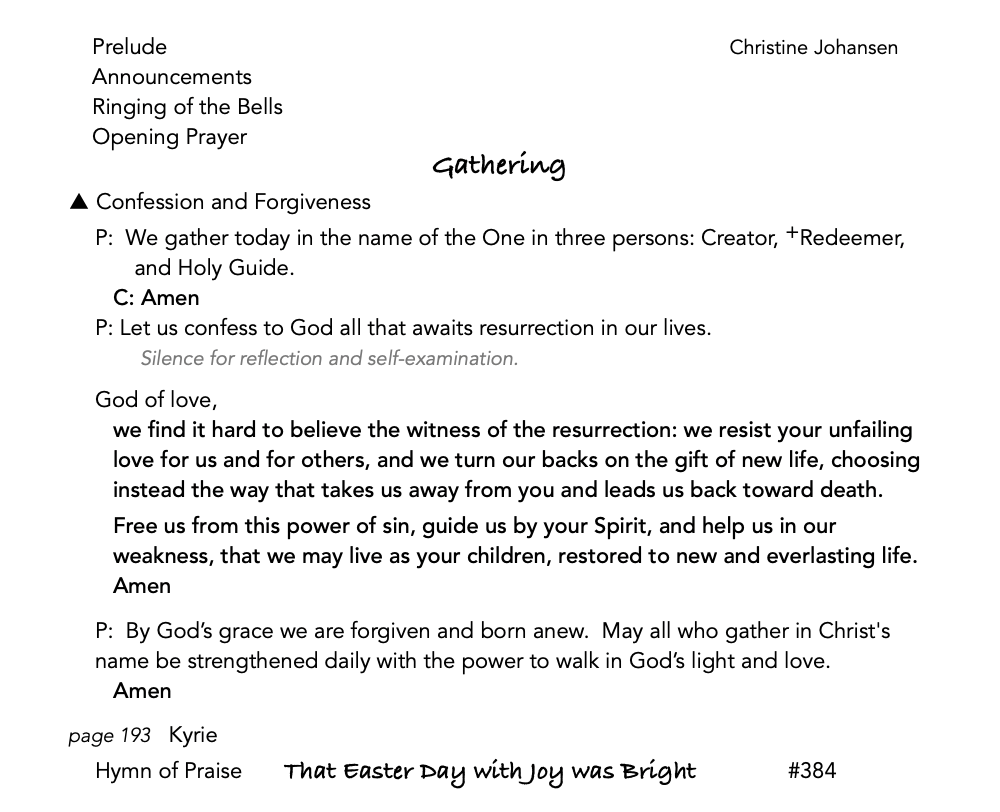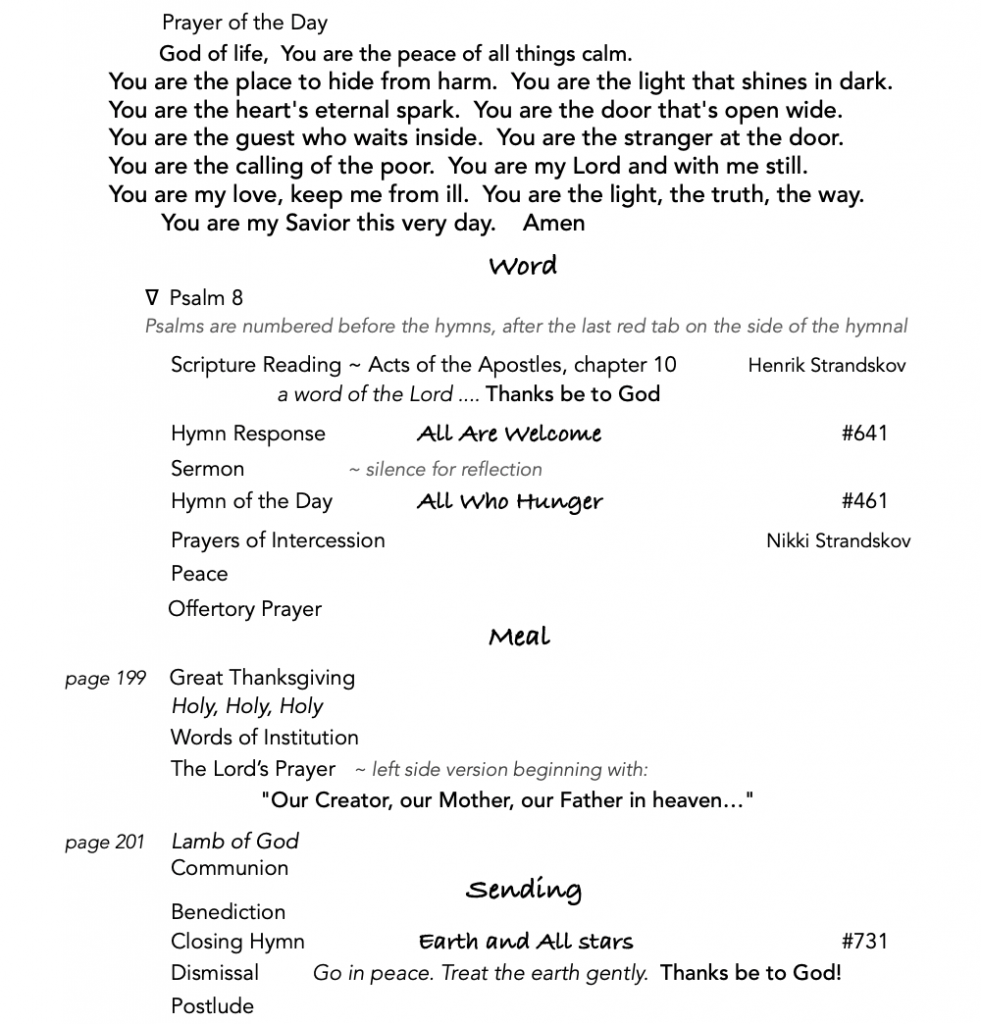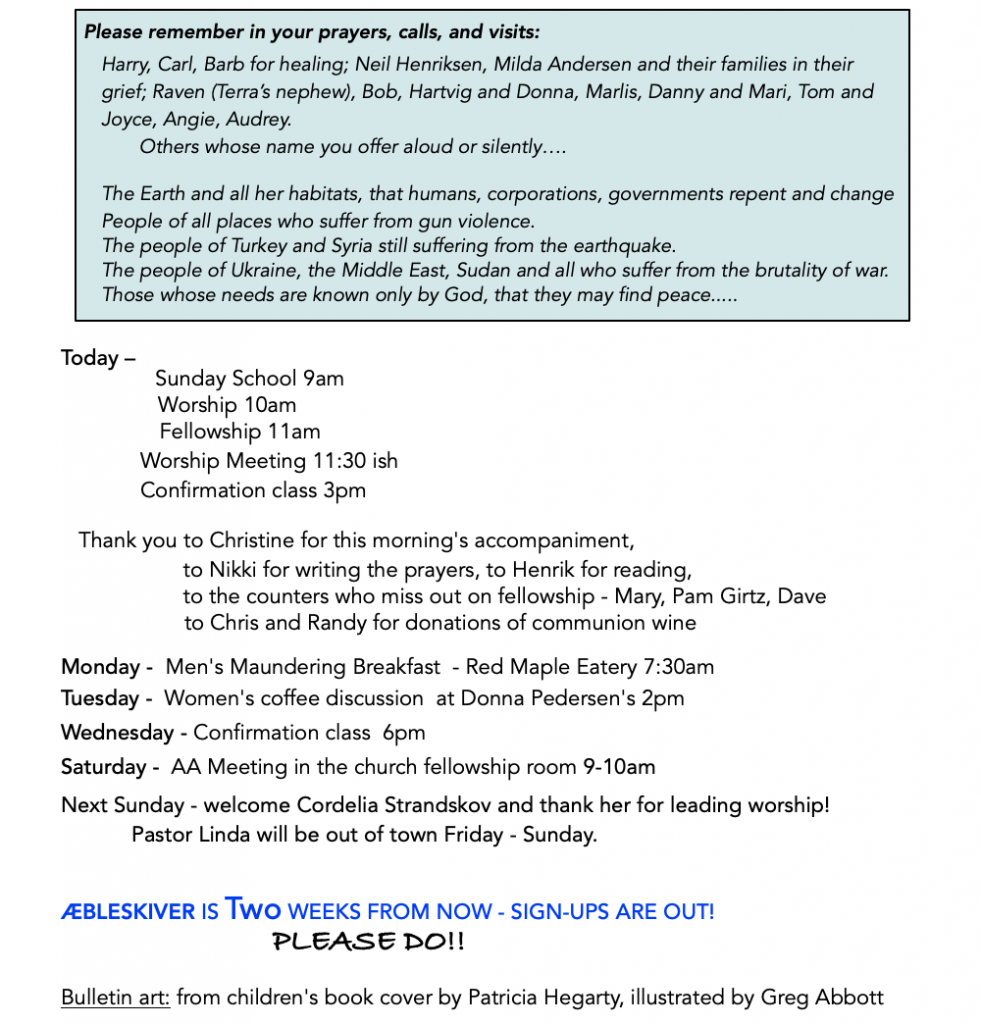Audio Recording


Acts 10
In Caesarea there was a man named Cornelius, a centurion of the Italian Cohort, as it was called. 2He was a devout man who feared God with all his household; he gave alms generously to the people and prayed constantly to God.
3One afternoon at about three o’clock he had a vision in which he clearly saw an angel of God coming in and saying to him, “Cornelius.” 4He stared at him in terror and said, “What is it, Lord?” He answered, “Your prayers and your alms have ascended as a memorial before God. 5Now send men to Joppa for a certain Simon who is called Peter; 6he is lodging with Simon, a tanner, whose house is by the seaside.”
7When the angel who spoke to him had left, he called two of his slaves and a devout soldier from the ranks of those who served him, 8and after telling them everything, he sent them to Joppa.
9About noon the next day, as they were on their journey and approaching the city, Peter went up on the roof to pray. 10He became hungry and wanted something to eat; and while it was being prepared, he fell into a trance. 11He saw the heaven opened and something like a large sheet coming down, being lowered to the ground by its four corners. 12In it were all kinds of four-footed creatures and reptiles and birds of the air. 13Then he heard a voice saying, “Get up, Peter; kill and eat.”
14But Peter said, “By no means, Lord; for I have never eaten anything that is profane or unclean.” 15The voice said to him again, a second time, “What God has made clean, you must not call profane.” 16This happened three times, and the thing was suddenly taken up to heaven.
17Now while Peter was greatly puzzled about what to make of the vision that he had seen, suddenly the men sent by Cornelius appeared. They were standing by the gate. 18They called out to ask whether Simon, who was called Peter, was staying there. 19While Peter was still thinking about the vision, the Spirit said to him, “Look, three men are searching for you. 20Now get up, go down, and go with them without hesitation; for I have sent them.”
21So Peter went down to the men and said, “I am the one you are looking for; what is the reason for your coming?” 22They answered, “Cornelius, a centurion, an upright and God-fearing man, who is well spoken of by the whole Jewish nation, was directed by a holy angel to send for you to come to his house and to hear what you have to say.” 23So Peter invited them in and gave them lodging.
The next day he got up and went with them to Caesarea. Cornelius was expecting them and had called together his relatives and close friends. 25On Peter’s arrival Cornelius met him, and falling at his feet, worshiped him. 26But Peter made him get up, saying, “Stand up; I am only a mortal.” 27And as he talked with him, he went in and found that many had assembled; 28and he said to them, “You yourselves know that it is unlawful for a Jew to associate with or to visit a Gentile; but God has shown me that I should not call anyone profane or unclean.
34Then Peter began to speak to them: “I truly understand that God shows no partiality, 35but in every nation anyone who fears him and does what is right is acceptable to him. 36You know the message he sent to the people of Israel, preaching peace by Jesus Christ — he is Lord of all. 37That message spread throughout Judea, beginning in Galilee after the baptism that John announced: 38how God anointed Jesus of Nazareth with the Holy Spirit and with power; how he went about doing good and healing all who were oppressed by the devil, for God was with him. 39We are witnesses to all that he did both in Judea and in Jerusalem. They put him to death by hanging him on a tree; 40but God raised him on the third day and allowed him to appear, 41not to all the people but to us who were chosen by God as witnesses…”
44While Peter was still speaking, the Holy Spirit fell upon all who heard the word. 45The circumcised believers who had come with Peter were astounded that the gift of the Holy Spirit had been poured out even on the Gentiles.… Then Peter said, 47Can anyone withhold the water for baptizing these people who have received the Holy Spirit just as we have? 48So he ordered them to be baptized in the name of Jesus Christ. Then they invited him to stay for several days.
a word of the Lord…. Thanks be to God
I bet we can all identify with Peter and his dream. I don’t mean in the specifics, but in the weirdness of it. Right? Haven’t you tried to explain a dream to someone that seemed so reasonable in sleep, only to have all logical threads unravel as you try to put words to images? Peter was hungry and he fell asleep waiting for lunch — we’ve all been there — and in a vision sees a sheet being lowered from the sky by its corners, and as it settles on the ground and opens up, he sees that it is full of animals, turtles, lizards, bugs and birds flying around and crawling around and standing there looking at him. And, being a good Jew, he recognizes that none of them are kosher. It’s a picnic blanket and hamper, but there’s nothing he can eat. But then a voice says, “Get up, kill and eat!” Peter is repulsed. “My God, I couldn’t possibly. I’ve never… I could never!” But the voice says, “Yes, you can. This is food, and it is for you. Do not look God’s gift horse in the mouth!” Or gift varmint.
Peter has always seemed a bit slow to catch on, and it is a dream after-all, so he says it again, “I would never eat anything that is unclean. Yuck! And I have to kill it and prepare it myself?”
“It is for you!,” says the voice. “You do not get to decide what is unclean or profane. God don’t make no junk!” After the third repetition, the sheet is gathered up by its corners and the whole menagerie is swept back into heaven.
Peter, we are told, was greatly puzzled by this vision, and didn’t know what to make of it.
Fortunately, for him and for us, the Holy Spirit was his dream guide and had been behind the scenes arranging a blind date with Cornelius. I don’t need to retell the story – it’s pretty clear what happens.
I love the way it shows Peter gradually catching on, because this is a good description of how we come to a new perspective: always a bit behind the evidence. Author Neil Gaiman, says, “You find out how the world works always by trial — and always by error.”
As Peter discovers, the Holy Spirit preceded him to Cornelius’ house and household. They were God-fearing to start with – which was kind of a membership category in Judaism. It refers to goyim (non-Jews) who were devote people observing the Jewish religion, worshipping the God of Israel, but who couldn’t participate in everything Jewish — they aren’t circumcised, for example — so they’re on the margins. Cornelius was a spiritual searcher, open to the Spirit’s call and influence.
And with Cornelius’ help, devout Peter eventually realizes that his vision wasn’t about food, it was about people. Purity laws defined God’s chosen people, set them apart from the Gentile world. But God’s chosen people have always been emblematic of the whole – a precious subset of all God’s people for all God’s creation. The dream was about the power of God, the will of God, to reconcile the subset with the whole, to continue the mission begun in Creation of bringing all people into relationship with her loving Godself.
Now, even though we have heard this message — that Israel was to be a light to all the nations, that the God of Israel would redeem and save Jew and Gentile alike, that disciples are to be salt of the earth… and even though the book of Acts begins with Jesus’ instructions: “you will be my witnesses in Jerusalem, in all Judea and Samaria, and to all the ends of the earth”… Even though we’ve got that, I wonder if we’ve got it right, or if we’re still struggling with Peter’s dream?
Just as there are really disgusting food delicacies peculiar to the world’s cultures – I did a very brief internet search and decided not to highlight what I found – are there also elements of the human culture we would not expect to meet at the eschatological picnic? I suspect there are.
Peter had a really difficult time believing that Gentiles like this Roman centurion could/would receive the same Holy Spirit that he and his fellow disciples experienced at Pentecost. This episode occurs not long after Jesus was crucified by Roman soldiers. Peter was as repulsed by the intimate, vulnerable act of eating with this particular Italian Gentile as he was by the notion of eating snails and blood-sausage from the picnic sheet. He finally understands that God shows no such partiality, but it takes many chapters of conflict and disagreement in the book of Acts for the principal players of apostles to conclude that God had already made Gentiles and Greeks acceptable and that no additional requirements are needed for them to join the fellowship.
God’s desire for this inclusion moves all the action in the story: the disciples balk and hesitate and can’t quite believe it even though they have to acknowledge it. It goes so against the grain. Those who encounter the disciples describe/accuse them of “turning the world upside down,” and they do – but the Holy Spirit turns the disciples’ own world topsy-turvy in the process.
We’re still reading this through the lens of the ancient world. What happens when we read it through the lens of the modern world?
We see in scripture that Jews, Gentiles, and Greeks were welcomed without leaving their cultural and ethnic diversity and distinctions behind. God is not creating a generic, homogeneous people but a true ecosystem. The message we discern from Acts is that God’s good news is open to all people. The Holy Spirit shows no partiality – people from anywhere, everywhere in the world are able to receive the Holy Spirit and be drawn into God’s mission.
And that’s the thing I wonder about. God’s mission, God’s impartiality in a diversified, pluralistic world. And the Christian’s role.
We are so divided, so fractured by beliefs and values, perceived rights and fears. And this is true of any little subset one might happen to choose – Polk County, WI is pretty small, but rife with division.
We can barely live together as citizens, barely tolerate the ‘other’. I mean, once we get to know them, once we get to know the points of divergence between us. And if we’re talking about God’s mission for the world? If the apostles learned, with difficulty, that God chose Gentiles as they were, for what they were as though they were Jews, does that lesson enlarge for us into believing that God sees all people of good will, all beliefs, from all religious traditions as acceptable and chosen agents of God’s mission? I think it does, but many would absolutely disagree with me.
What becomes of the Christian chosen-ness if all are included in God’s love and concern and redemption? Can this be possible? Don’t all need to become Christian to receive the salvation of Christ?
Well, isn’t the point of Jesus’ resurrection the redemption of the whole? Once, and for all?
If so, then what of the Gospel? What of the Holy Spirit? What’s the point of being Christian?
My favorite Martin Luther assertion is found in the explanation of the Apostle’s creed: “I believe that I cannot by my own reason or strength believe in Jesus Christ, my Lord, or come to Him; but the Holy Spirit has called me by the Gospel, enlightened me with His gifts, sanctified and kept me in the true faith.”
As was true for Peter and Cornelius, so it is that God’s Spirit does the work of calling and enlightening. We aren’t privy to know how others are called or through what words or visions they are enlightened. That is God’s work. I can’t imagine that only Christians or only Jews and Christians are worthy of God’s eternal presence and love. Our role or calling as Christians may simply be to acknowledge the grace and mercy of God toward all people without partiality, and in that way witness to our faith in the Good News of Jesus Christ for all the earth.
.
